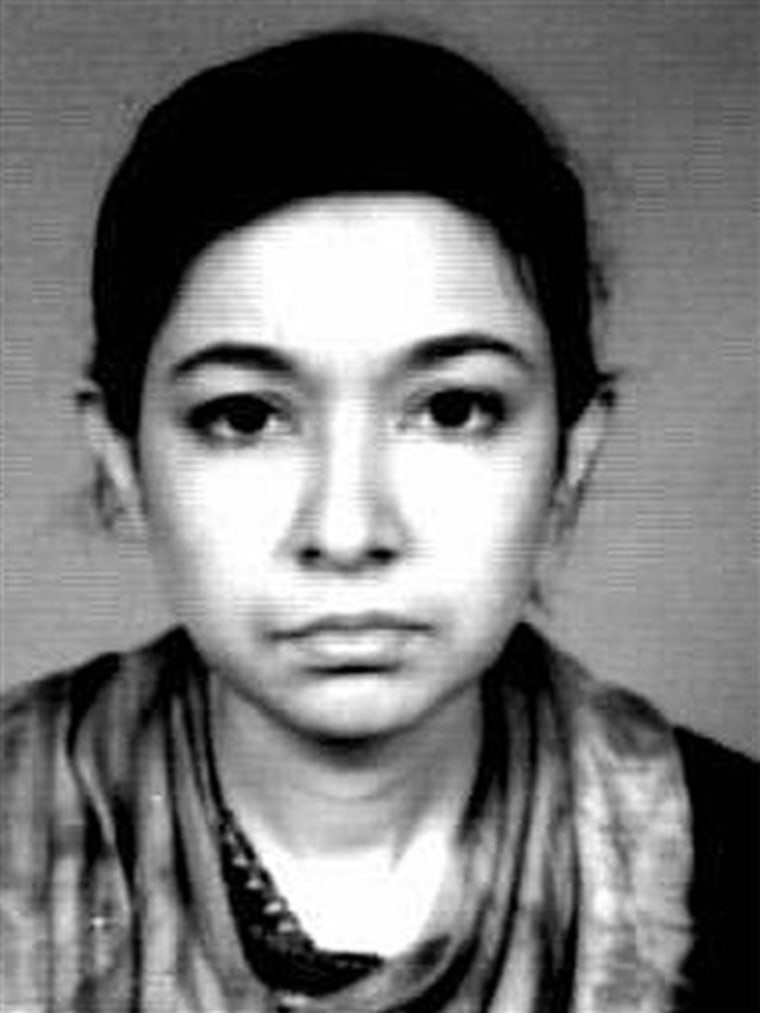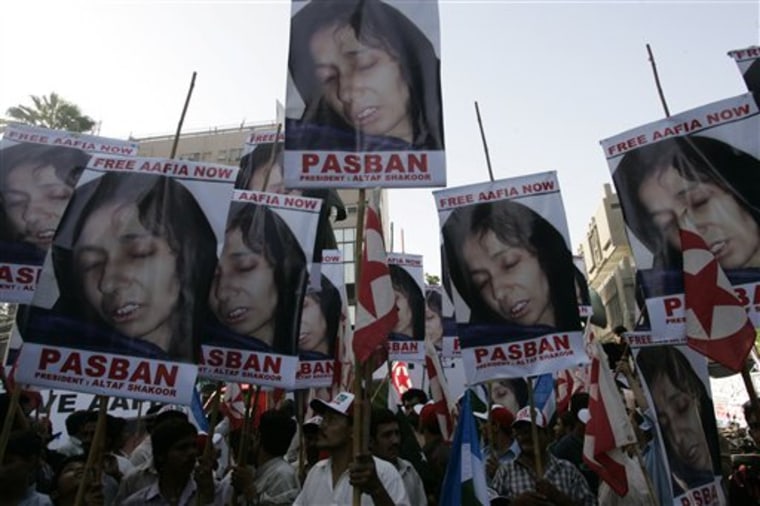Pakistan's prime minister called scientist Aafia Siddiqui "the daughter of the nation" on Friday and vowed to campaign for her release after a U.S. judge sentenced her to 86 years in prison for trying to kill U.S. interrogators in Afghanistan.
Yousuf Raza Gilani's comments appeared to be an attempt to manage public anger over the lengthy sentence handed down to 38-year-old Siddiqui on Thursday. Her defense lawyers had asked for a sentence closer to 12 years behind bars.
The plight of the American-trained Pakistani scientist and mother has struck a chord among Islamist groups and ordinary Pakistanis, many of whom are convinced of her innocence.
Siddiqui's punishment prompted demonstrations in at least two cities, with much of the anger directed at the already unpopular Pakistani government for failing to somehow intervene in her case.
But at her Thursday sentencing, Siddiqui had urged her supporters to keep calm.
"Don't get angry," she said, adding that they should "forgive" the judge who sentenced her.
"I don't want any violence in my name, please," said Siddiqui, who wore a beige tunic and white headscarf covering her mouth and forehead to the three-and-a-half hour hearing.
But Pakistani authorities Friday braced for more protests.
'Daughter of the nation'
Gilani said he had recently lobbied U.S. officials for Siddiqui's release to "improve the U.S. image in Pakistan."
"We all are united, and we want the daughter of the nation to come back to Pakistan," he told parliament, which unanimously adopted a resolution demanding Aafia's "repatriation."
"I fought for her, my lawyer fought for her and now I will take up this matter on a political level," he said.
Afghan police captured Siddiqui, who holds a doctorate from Brandeis University in Massachusetts, in Afghanistan in 2008.
Prosecutors said at trial that once in the interrogation room on the day after her arrest, she grabbed an M4 rifle and started shooting while yelling "death to America." She did not hit any American agents or soldiers, but Siddiqui was shot and wounded in response, according to U.S. prosecutors' version of events.
The jury convicted Siddiqui in February of this year.
Siddiqui's lawyers argued in court papers that her outburst inside a cramped Afghan outpost was a spontaneous "freak out," born of mental illness not militancy. The Pakistani government paid for three members of the defense team.

But prosecutors' court papers cite notes Siddiqui was allegedly carrying at the time of her detention that reference "a mass casualty attack" at iconic New York City locations and describe how she mused how a dirty bomb would spread more fear than death.
They claimed the notes, along with the fact that she was carrying sodium cyanide, showed she wasn't an accidental menace.
Many Pakistanis believe claims by her supporters that the U.S. abducted Siddiqui long before that and kept her in a secret prison for years as it pursued its fight against global terrorism.
U.S. officials deny those claims, though they had listed Siddiqui as a suspect wanted for alleged links to al-Qaida before her arrest.
Siddiqui said in court Thursday that overseas reports that she was being tortured in a U.S. prison particularly upset her. She said she was actually being treated well, and that the any report to the contrary "is a myth and lie and it's being spread among the Muslims."
At Thursday's sentencing, U.S. District Judge Richard Berman noted Siddiqui's "intelligence, talents and possibilities," but disagreed with defense arguments about her mental state.
Berman ordered her transferred to a prison in Texas specializing in medical services.
